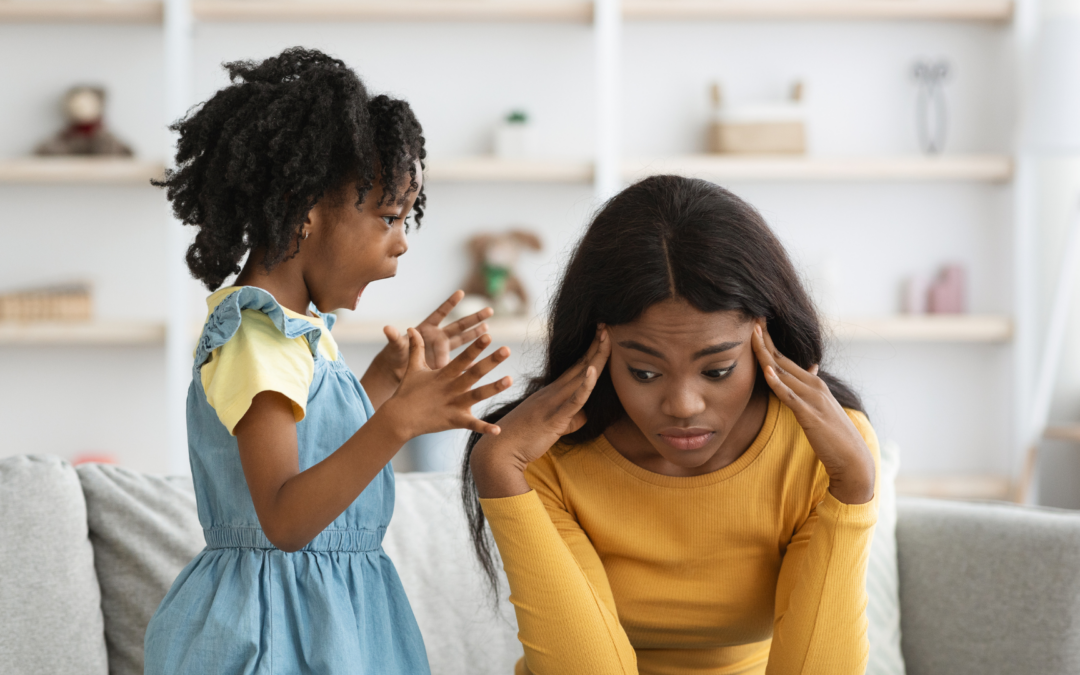Attention Deficit Hyperactivity Disorder, commonly known as ADHD, is a neurodevelopmental disorder that affects both children and adults. It is a condition that can impact various aspects of one’s life, including education, career, relationships, and overall well-being. While it is often associated with hyperactive and impulsive behavior in boys, it is often overlooked in girls and women, who may present with different symptoms.
According to recent studies, women are often diagnosed with ADHD later in life, if at all, due to the lack of awareness and understanding of how it manifests in females. This is why having a comprehensive ADHD checklist specifically designed for women is crucial.
This ultimate ADHD checklist in women aims to help you identify the symptoms and seek appropriate help. From understanding the different types of ADHD to recognizing the signs and causes, this guide will cover everything you need to know to manage and thrive with ADHD.
So, whether you are a woman who suspects you may have ADHD, or you know someone who does, read on to discover how to navigate this complex condition.

Understanding ADHD in women
ADHD is a condition that affects the way the brain functions, particularly in areas such as attention, focus, and impulse control. While the core symptoms of ADHD are the same for both males and females, women tend to experience it differently. Women with ADHD may not exhibit the same hyperactive and impulsive behavior as men, but rather, they tend to struggle more with inattentiveness and disorganization, which can have a significant impact on their daily lives.
One of the reasons why ADHD is often overlooked in women is because of the social and cultural norms that dictate how women should behave. Women are expected to be organized, responsible, and attentive, which can mask the symptoms of ADHD. Women with ADHD may struggle to meet these expectations, leading to feelings of inadequacy, guilt, and shame. It is essential to understand that ADHD is a real and valid condition that can affect anyone, regardless of gender, age, or background.
Women with ADHD may also experience more emotional dysregulation, which can manifest as mood swings, anxiety, and depression. These emotional struggles can be challenging to manage and can further exacerbate the symptoms of ADHD. It is crucial to seek help and support to manage these emotional challenges, along with the other symptoms of ADHD.
Signs and symptoms of ADHD in women
Recognizing the signs and symptoms of ADHD in women can be challenging, as they may not present in the same way as they do in men. Women with ADHD tend to struggle more with inattentiveness and disorganization, which can impact various aspects of their lives. Some common signs and symptoms of ADHD in women include:
- Difficulty paying attention, particularly during long lectures, meetings, or conversations.
- Chronic forgetfulness, such as forgetting appointments, deadlines, or important events.
- Poor time management skills, often running late or underestimating how long tasks will take.
- Difficulty with organization, such as keeping track of paperwork, bills, or personal belongings.
- Impulsiveness, such as making impulsive decisions or interrupting others during conversations.
- Procrastination, such as putting off tasks until the last minute or avoiding them altogether.
- Restlessness or hyperactivity, such as fidgeting, tapping, or squirming in one’s seat.
- Emotional dysregulation, such as mood swings, irritability, or overly sensitive to criticism.
- It is important to note that not all women with ADHD will experience these symptoms, and some may experience them to varying degrees. If you suspect that you or someone you know may have ADHD, it is essential to seek professional help and get a proper diagnosis.
The impact of ADHD on women's daily lives
ADHD can have a significant impact on a woman’s daily life, from their education and career to their relationships and overall well-being. Women with ADHD may struggle with time management, organization, and completing tasks, which can make it challenging to succeed in school or the workplace. They may also have difficulty maintaining relationships, as their forgetfulness and impulsivity can lead to misunderstandings and conflicts.
Women with ADHD may also experience low self-esteem and feelings of worthlessness, as they struggle to meet the expectations placed upon them. They may feel overwhelmed by their responsibilities, leading to feelings of anxiety and depression. It is crucial to seek help and support to manage the impact of ADHD on one’s daily life, and to learn strategies to cope with the challenges it presents.
Diagnosing ADHD in women
Diagnosing ADHD in women can be challenging, as the symptoms may not present in the same way as they do in men. It is important to seek professional help from a qualified healthcare provider who has experience in diagnosing and treating ADHD. The diagnosis process typically involves a comprehensive assessment of one’s symptoms and medical history, along with any relevant psychological testing.
It is essential to be honest and open about one’s symptoms and experiences, as this will help the healthcare provider make an accurate diagnosis. Women with ADHD may also need to undergo additional testing to rule out other conditions that may have similar symptoms.
Seeking help for ADHD
Seeking help for ADHD is crucial in managing the condition and reducing its impact on one’s life. There are various forms of support available for women with ADHD, including therapy, medication, coaching, and support groups. It is essential to find the right form of support that works for one’s individual needs and preferences.
Therapy can help women with ADHD learn coping strategies and develop skills to manage their symptoms. Medication can also be effective in treating ADHD, particularly for those who struggle with inattentiveness and hyperactivity. Coaching and support groups can provide additional support and guidance, as well as a sense of community and connection.
It is important to seek support from qualified professionals who have experience in treating ADHD. Women with ADHD may also benefit from seeking support from family and friends, who can provide emotional support and help with daily tasks.
ADHD treatment options for women
There are various treatment options available for women with ADHD, including medication, therapy, coaching, and lifestyle changes. The most common form of medication used to treat ADHD is stimulants, which can help improve focus, attention, and impulse control. However, medication is not suitable for everyone, and some women may prefer to explore alternative treatment options.
Therapy can be an effective form of treatment for women with ADHD, particularly cognitive-behavioral therapy (CBT). CBT can help women learn coping strategies and develop skills to manage their symptoms. Coaching can also be beneficial in providing guidance and support, particularly in areas such as time management, organization, and goal setting.
Lifestyle changes can also be effective in managing ADHD symptoms, such as getting enough sleep, exercising regularly, eating a healthy diet, and reducing stress. Women with ADHD may also benefit from implementing structure and routine into their daily lives, such as using a planner or a to-do list.
Coping strategies for women with ADHD
Coping with ADHD can be challenging, but there are various strategies that women with ADHD can use to manage their symptoms. Some effective coping strategies include:
- Break tasks down into smaller, more manageable steps.
- Use visual aids, such as calendars or to-do lists, to stay organized and on track.
- Set clear goals and priorities and focus on one task at a time.
- Take regular breaks, particularly when working on long or complex tasks.
- Practice mindfulness and relaxation techniques, such as meditation or deep breathing exercises.
- Seek support from family, friends, or support groups.
- Be kind and compassionate towards oneself.
- It is important to find coping strategies that work for one’s individual needs and preferences, and to be patient and persistent in implementing them.
Lifestyle changes to manage ADHD symptoms.
Implementing lifestyle changes can also be effective in managing ADHD symptoms. Some lifestyle changes that women with ADHD may benefit from include:
- Getting enough sleep and establishing a regular sleep schedule.
- Exercising regularly, such as engaging in physical activities that one enjoys.
- Eating a healthy and balanced diet and avoiding excessive sugar and caffeine.
- Reducing stress through activities such as yoga, meditation, or mindfulness.
- Creating structure and routine in one’s daily life, such as setting aside specific times for work, exercise, and relaxation.
- Engaging in hobbies and activities that one enjoys, and that provide a sense of fulfillment and accomplishment.
- It is important to find lifestyle changes that work for one’s individual needs and preferences, and to make them a part of one’s daily routine.
ADHD resources for women
There are various resources available for women with ADHD, including support groups, advocacy organizations, and online forums. Some helpful resources include:
- ADDitude Magazine: An online magazine that provides information and resources on ADHD.
- CHADD: Children and Adults with Attention-Deficit/Hyperactivity Disorder is a nonprofit organization that provides support and resources for individuals with ADHD.
- National Institute of Mental Health: An organization that provides information and resources on mental health conditions, including ADHD.
- Women with ADHD: An online community and resource for women with ADHD.
- Reddit ADHD: An online forum for individuals with ADHD.
- It is important to find resources that resonate with one’s individual needs and preferences, and to seek support and guidance from qualified professionals.

ADHD is a complex condition that can impact various aspects of one’s life, including education, career, relationships, and overall well-being. While it is often overlooked in women, it is essential to understand that ADHD can affect anyone, regardless of gender, age, or background. This ultimate ADHD checklist in women aims to help women identify the symptoms of ADHD and seek appropriate help.
From understanding the different types of ADHD to recognizing the signs and causes, this guide has covered everything women need to know to manage and thrive with ADHD. It is essential to seek professional help and support and to implement coping strategies and lifestyle changes that work for one’s individual needs and preferences.
With the right support and guidance, women with ADHD can learn to manage their symptoms and live fulfilling and productive lives.






